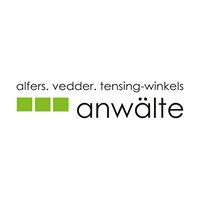Best Collaborative Law Lawyers in Lingen
Share your needs with us, get contacted by law firms.
Free. Takes 2 min.
Free Guide to Hiring a Family Lawyer
List of the best lawyers in Lingen, Germany
About Collaborative Law in Lingen, Germany
Collaborative Law is an alternative dispute resolution method that focuses on resolving legal issues, particularly in family law, outside of court. In Lingen, Germany, this approach is gaining popularity as an amicable solution for conflicts such as divorce, child custody, and property settlement. Collaborative Law aims to foster open communication and mutually beneficial agreements with the assistance of specially trained legal professionals. This method can help avoid lengthy and costly court proceedings and ensures that all parties feel heard and respected.
Why You May Need a Lawyer
There are several situations where seeking legal advice in the area of Collaborative Law makes sense:
- When you and your spouse or partner are considering separation or divorce and want to avoid litigation.
- If you are looking to resolve child custody or support issues in a cooperative, less adversarial manner.
- In cases of dividing property or settling financial matters in a relationship breakdown.
- When you and the other party desire to maintain privacy, as collaborative processes are confidential.
- If you are dealing with complex family relationships and wish to maintain amicable contacts post-settlement.
- To get professional assistance during negotiations ensuring all parties’ interests are well represented.
- When you want a legally binding agreement that reflects the agreed-upon terms between both parties.
Local Laws Overview
In Lingen, as in the rest of Germany, Collaborative Law is recognized as a voluntary and confidential process. While not governed by a unique set of statutes, it draws on the broader legal principles of German civil procedure and family law. Participants engage with specially trained collaborative lawyers who agree not to represent their clients in court should the process fail.
German family law emphasizes the best interests of the child and equitable division of assets. Agreements achieved through Collaborative Law can be certified by a notary or submitted to the court for approval, making them enforceable. Confidentiality of discussions during collaborative sessions is protected, and the process promotes transparency and candid communication.
Frequently Asked Questions
What is Collaborative Law?
Collaborative Law is a process where parties work together with their lawyers to resolve disputes outside of court, focusing on open communication and cooperative solutions.
How does Collaborative Law differ from mediation?
While both aim for amicable settlements, mediation involves a neutral third party guiding the discussion. Collaborative Law means each party has their own lawyer, but all work together to reach agreement.
Is Collaborative Law binding in Germany?
Agreements reached can be formalized legally, often through notarization or court approval, making them binding and enforceable under German law.
Can Collaborative Law be used for issues other than divorce?
Yes, it is often used for various family matters such as custody, support arrangements, and property division, and can also be applied in some business or inheritance disputes.
What happens if Collaborative Law fails?
If no agreement is reached, the lawyers involved must withdraw, and both parties will seek new representation for court proceedings.
Do both parties need to agree to use Collaborative Law?
Yes, Collaborative Law is entirely voluntary and requires the consent and commitment of all involved parties.
Are the discussions in Collaborative Law confidential?
Yes, all discussions and negotiations in the collaborative process are confidential and cannot be used in later court proceedings.
How long does the Collaborative Law process typically take?
The duration depends on the complexity of the issues and the cooperation between parties, but it is generally faster than traditional litigation.
Are children involved in the collaborative sessions?
Children do not usually participate directly, but their needs and best interests are a primary focus, especially in custody and support matters.
Do I still need a lawyer for Collaborative Law?
Yes, each party has their own collaboratively trained lawyer to provide individual legal advice throughout the process.
Additional Resources
For further assistance with Collaborative Law in Lingen, you may consider the following resources:
- Local attorneys who specialize in Collaborative Law or Familienrecht (family law).
- The Lingen Bar Association (Rechtsanwaltskammer Osnabrück) for referrals to collaborative law professionals.
- Family counseling centers (Familienberatungsstellen) for mediation and support services.
- The German Association for Collaborative Practice (Deutsche Gesellschaft für Collaborative Practice - DGCP) for information and a directory of trained professionals.
- Local notaries (Notare) for the formalization and notarization of agreements.
- Municipal family courts (Familiengerichte) for the approval and enforcement of agreements.
Next Steps
If you believe Collaborative Law could be the right approach for your situation in Lingen, Germany, consider the following steps:
- Reflect on whether you and the other party are open to an amicable, cooperative process.
- Consult with a lawyer who is trained in collaborative practice to discuss your options and assessment of your case.
- Invite the other party to participate in the collaborative process, explaining its benefits and confidentiality.
- Set up an initial joint meeting with both parties' lawyers to outline the process and sign a participation agreement.
- Work with your lawyer to prepare necessary documents and gather relevant financial or custodial information.
- Attend collaborative sessions with a focus on open communication and mutual agreement.
- Have your final agreement reviewed, notarized, and approved by the court, if necessary.
- Continue to use collaborative principles for any future modifications or disagreements that may arise.
Engaging a collaborative lawyer ensures you are guided through each step safely and efficiently, aiming for a resolution that respects everyone’s interests.
Lawzana helps you find the best lawyers and law firms in Lingen through a curated and pre-screened list of qualified legal professionals. Our platform offers rankings and detailed profiles of attorneys and law firms, allowing you to compare based on practice areas, including Collaborative Law, experience, and client feedback.
Each profile includes a description of the firm's areas of practice, client reviews, team members and partners, year of establishment, spoken languages, office locations, contact information, social media presence, and any published articles or resources. Most firms on our platform speak English and are experienced in both local and international legal matters.
Get a quote from top-rated law firms in Lingen, Germany — quickly, securely, and without unnecessary hassle.
Disclaimer:
The information provided on this page is for general informational purposes only and does not constitute legal advice. While we strive to ensure the accuracy and relevance of the content, legal information may change over time, and interpretations of the law can vary. You should always consult with a qualified legal professional for advice specific to your situation.
We disclaim all liability for actions taken or not taken based on the content of this page. If you believe any information is incorrect or outdated, please contact us, and we will review and update it where appropriate.










